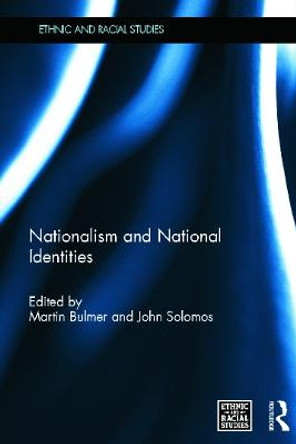Description
About the Author
David Martin-Jones is a Senior Lecturer in Film Studies at The University of St Andrews in Scotland.
Reviews
This book fruitfully and originally combines three areas of investigation: recent cinema, Deleuzean film theory, and national identity... This is a timely and well-informed addition to current discussions in Anglophone film studies. Forum for Modern Language Studies Deleuze, Cinema and National Identity tackles the burning questions of globalisation. While critiquing the dated, European, even French nature of Deleuzian philosophy, David Martin-Jones brings out its contemporary relevance in a global context. !The strength of the analyses, and the work as a whole lies in its avoidance of triumphalism, whether national or transnational. Applied to such highly political questions, the notions of deterritorialisation and reterritorialisation emerge in all their complexity and power. (original quote in French) Question de Communication An impressive feat, and a model for future scholarship in this vein. Martin-Jones makes Deleuze 'matter' in that his historical perspective stresses that the Deleuzian distinction between time- and movement-images is not merely formal, but deeply political. Screen David Martin-Jones' Deleuze, Cinema and National Identity is one of the standout books of the year. Martin-Jones provides a profound and original reassessment of Gilles Deleuze's own concepts of style and history in modern cinema. At the same time, the book goes beyond Deleuze, indeed displaces his thought on to new territories. With his engaging and deeply thoughtful analyses of mixtures of movement and time in contemporary world cinema, Martin-Jones takes us beyond movement and time-images towards something like a new genre-hybrid global cinemas where questions of national identity are deterritorialised within and across borders and cultures. This is a remarkable book. -- Professor David Rodowick, Harvard University Martin-Jones combines theoretical insights with a profound knowledge of various national cinemas and sharp analytical observations. His reading of a challengingly wide selection of contemporary films as Deleuzian time-images 'caught in the act' of becoming movement-images in relation to national identity offers a convincing and important contribution to film studies and to Deleuzian scholarship. -- Laura Marks, Simon Fraser University Martin-Jones is able to argue for the manifestation of the relationship between history and memory via a particular film's focus on narrative time, and thus re-engage his textual analysis with the particular national cinema's political or historical context. Given that such a project gestures to the potential of film analysis for constructive political critique and cultural analysis, this volume posits an intervention in film studies' discursive formation. -- Sharon Lin Tay Screening the Past Rather than producing another philosophical explication of Deleuze's Eurocentrically inflected cinema books, Deleuze, Cinema and National Identity mobilises their concepts by engaging them in critical and creative action in a crucial new field! By moving from the letter to the spirit of Deleuzian critique, Martin-Jones's lucid, impressively argued book makes a provocative intervention in both Deleuze studies and film studies. This distinctive and politically engaged assemblage demands our closest attention. -- Anna Powell, University of Manchester Deleuze Studies Underpinning Deleuze, Cinema and National Identity is a debate as to where and how Deleuze can fit into the broader remit of the academic discipline of Film Studies. For this, as well as Martin-Jones's talent for opening up a discussion of (often) convoluted theoretical concepts in a manner that is as lucid as it is accessible, the book will, one imagines, find a broad readership in both Film Studies and Deleuze Studies. -- Will Higbee, University of Exeter Film-Philosophy Martin-Jones' book contains suggestive lines of inquiry for the analysis of the question of national identity in cinema. He manages to construct a theoretical model able to think through multiple perspectives when discussing national identity, narrative and nationality as interconnected dimensions. Secuencias: Revista de Historia del Cine A useful and even essential book for considerations of transnationalism as an emerging concept in the critical discourse of world cinema. SCOPE: An Online Journal of Film Studies This book fruitfully and originally combines three areas of investigation: recent cinema, Deleuzean film theory, and national identity... This is a timely and well-informed addition to current discussions in Anglophone film studies. Deleuze, Cinema and National Identity tackles the burning questions of globalisation. While critiquing the dated, European, even French nature of Deleuzian philosophy, David Martin-Jones brings out its contemporary relevance in a global context. !The strength of the analyses, and the work as a whole lies in its avoidance of triumphalism, whether national or transnational. Applied to such highly political questions, the notions of deterritorialisation and reterritorialisation emerge in all their complexity and power. (original quote in French) An impressive feat, and a model for future scholarship in this vein. Martin-Jones makes Deleuze 'matter' in that his historical perspective stresses that the Deleuzian distinction between time- and movement-images is not merely formal, but deeply political. David Martin-Jones' Deleuze, Cinema and National Identity is one of the standout books of the year. Martin-Jones provides a profound and original reassessment of Gilles Deleuze's own concepts of style and history in modern cinema. At the same time, the book goes beyond Deleuze, indeed displaces his thought on to new territories. With his engaging and deeply thoughtful analyses of mixtures of movement and time in contemporary world cinema, Martin-Jones takes us beyond movement and time-images towards something like a new genre-hybrid global cinemas where questions of national identity are deterritorialised within and across borders and cultures. This is a remarkable book. Martin-Jones combines theoretical insights with a profound knowledge of various national cinemas and sharp analytical observations. His reading of a challengingly wide selection of contemporary films as Deleuzian time-images 'caught in the act' of becoming movement-images in relation to national identity offers a convincing and important contribution to film studies and to Deleuzian scholarship. Martin-Jones is able to argue for the manifestation of the relationship between history and memory via a particular film's focus on narrative time, and thus re-engage his textual analysis with the particular national cinema's political or historical context. Given that such a project gestures to the potential of film analysis for constructive political critique and cultural analysis, this volume posits an intervention in film studies' discursive formation. Rather than producing another philosophical explication of Deleuze's Eurocentrically inflected cinema books, Deleuze, Cinema and National Identity mobilises their concepts by engaging them in critical and creative action in a crucial new field! By moving from the letter to the spirit of Deleuzian critique, Martin-Jones's lucid, impressively argued book makes a provocative intervention in both Deleuze studies and film studies. This distinctive and politically engaged assemblage demands our closest attention. Underpinning Deleuze, Cinema and National Identity is a debate as to where and how Deleuze can fit into the broader remit of the academic discipline of Film Studies. For this, as well as Martin-Jones's talent for opening up a discussion of (often) convoluted theoretical concepts in a manner that is as lucid as it is accessible, the book will, one imagines, find a broad readership in both Film Studies and Deleuze Studies. Martin-Jones' book contains suggestive lines of inquiry for the analysis of the question of national identity in cinema. He manages to construct a theoretical model able to think through multiple perspectives when discussing national identity, narrative and nationality as interconnected dimensions. A useful and even essential book for considerations of transnationalism as an emerging concept in the critical discourse of world cinema.
Book Information
ISBN 9780748635856
Author David Martin-Jones
Format Paperback
Page Count 256
Imprint Edinburgh University Press
Publisher Edinburgh University Press
Weight(grams) 442g









